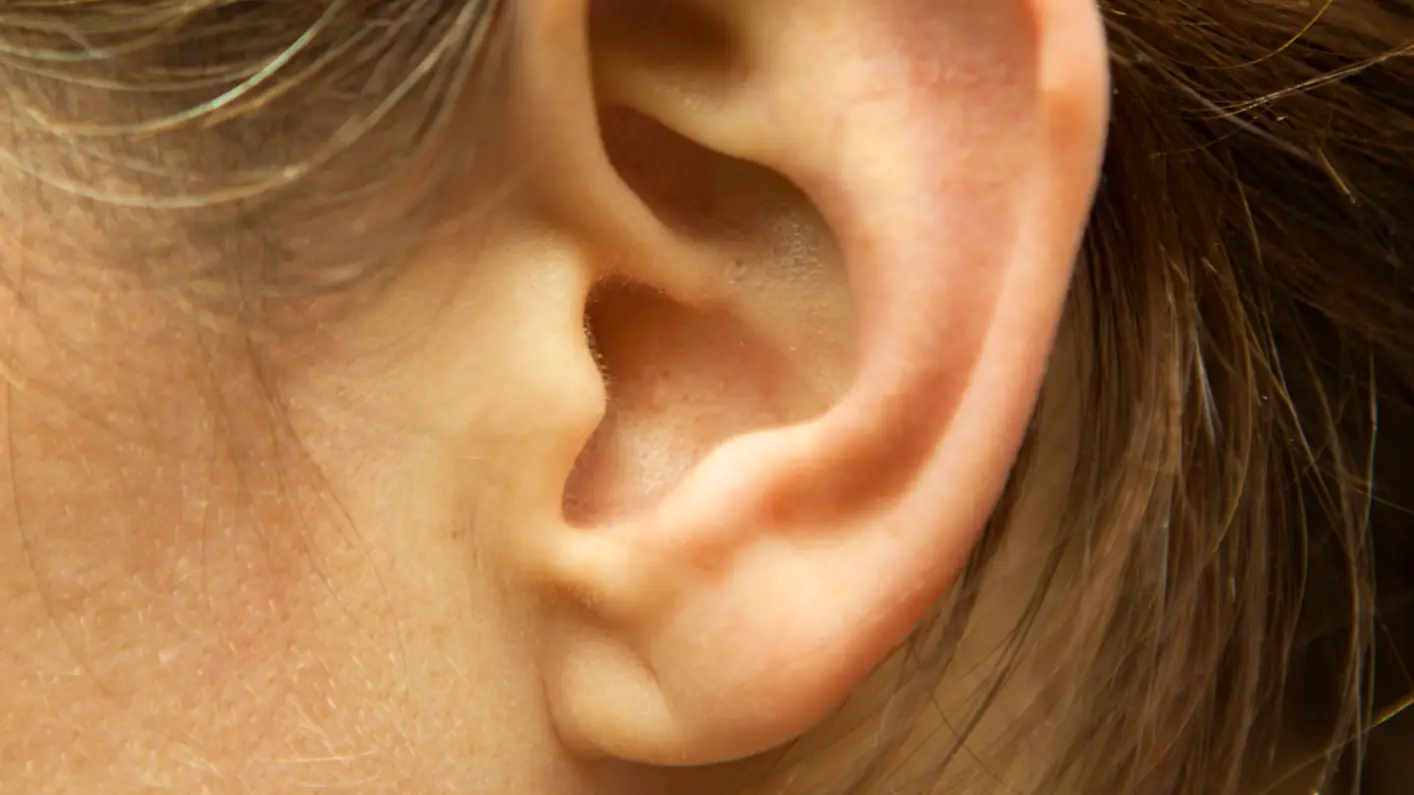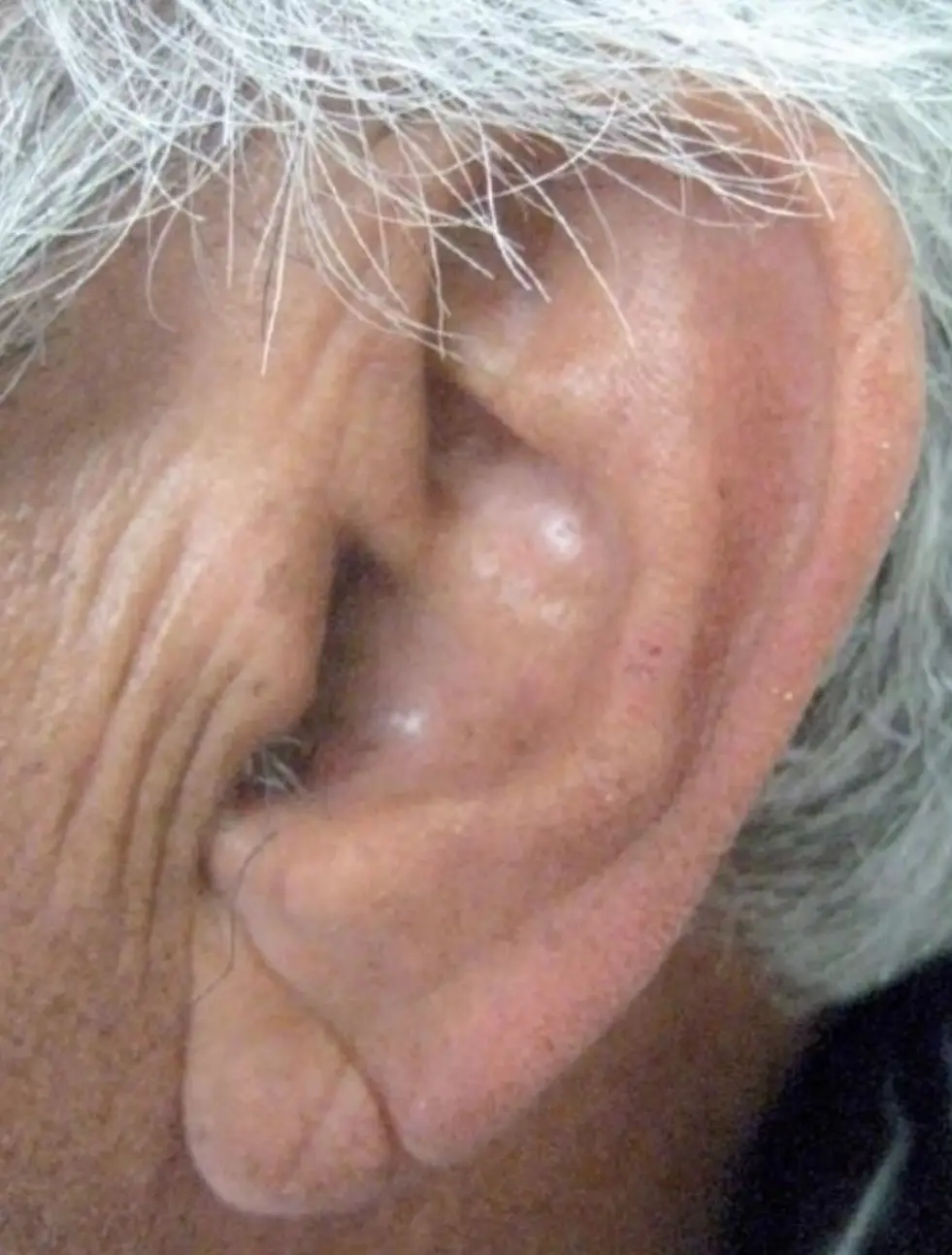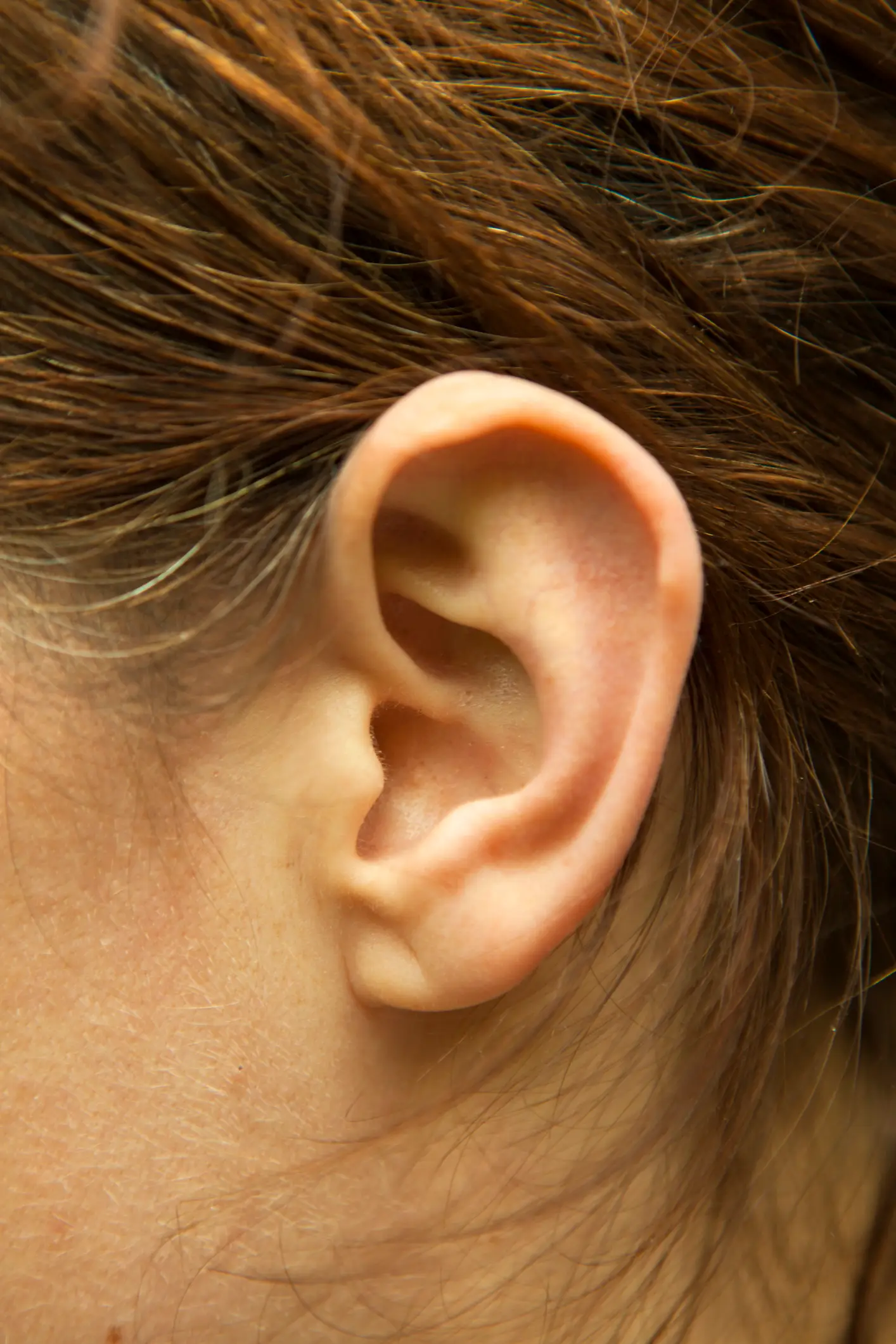
Head over to the nearest mirror and take a good long look at your lugholes.
Most of us don't pay too much attention to our ears when we're eyeing our reflections up, however, it seems like we ought to.
According to a host of studies, people with a distinct mark on their lobes could be at a greater risk of developing a serious heart condition.
We've got Dr Sanders T. Frank to thank for noticing this unusual connection between the two organs, as the pulmonologist picked up on a strange trend in a number of his patients who had angina.
Advert
He realised that 20 people he was treating for this condition each had a diagonal earlobe crease (DELC), according to Stanford Medicine.
The fold - which was later dubbed 'Frank's sign' in tribute to the Connecticut-born medic - extends from the tragus and down towards the far side of the earlobe.
The crease is believed to form as a result of the loss of elastic fibres within the skin, however, it is also a hallmark that is often observed in people who go on to suffer from serious cardiovascular issues.
This doesn't mean that every person with a crease on their earlobe is destined for a heart attack, but it is an interesting connection which experts have explored quite extensively.

End arteries facilitate the blood supply to both our heart and ears, according to Medical News Today, and once this supply is severed, 'no other arteries can take over'.
As a result of this, if the supply does suddenly stop, it can cause damage to vital tissues.
Some experts suspect that when this loss of blood flow reveals itself on our ears in the form of a crease, it could indicate that the same thing is going on with our heart.
A 2013 study corroborated this hypothesis, as boffins discovered that earlobe creases are 'associated with an increased risk of ischemic heart disease and myocardial infarction' - AKA, coronary artery disease (CAD) and a heart attack.
Further research conducted in 2016 found that the fold in the lobe can be a 'simple and feasible means of identifying' coronary heart disease, although it added that the Frank's sign theory 'warrants further study'.
Another scientific analysis of the relation between earlobe creases and heart problems in 2017 somewhat supported the idea too, as it found the fold 'could predict ischemic cerebrovascular events', commonly referred to as strokes.
"Patients with classical cardiovascular risk factors had Frank’s sign at a higher frequency," the research paper said.
In 2021, boffins found that people with earlobe creases who have CAD usually have low levels of the hormones adropin and irisin.
They reckoned that this decrease could trigger atherosclerosis, the narrowing of the arteries which increases the risk of heart attack and strokes, as well as the earlobe crease itself.

A similar study from the same year suggested that people with a DELC also had low levels of a hormone known as Klotho, which slows down the ageing process.
More recent studies from 2024 also supported Dr Frank's theory, as another concluded that patients with the earlobe crease and CAD 'had a 'significantly higher risk of atrial fibrillation than patients with coronary artery disease and without DELC'.
It also found that the presents of an earlobe crease 'predicted the development of atrial fibrillation in patients with coronary artery disease', while, according to another study in the Journal of Clinical Medicine, the crease has also been 'reported to be a predictor of major adverse cardiac events in patients with known coronary artery disease'.
"Our findings suggest that DELC might serve as a useful visible predictor of AF in patients with CAD," the authors said.
In the eyes of Tim Chico, a professor of Cardiovascular Medicine at the University of Sheffield, a crease in your earlobe is by no means a death sentence - however, it's at the very least some food for thought.
"Cardiovascular disease isn't just something that affects the heart, it affects all the blood vessels around the body and all organs," he said.
"It increases the risk of heart attacks and stroke but also kidney disease and even dementia.
"If we see DELC in a patient, it doesn't change the advice we give. You reduce the risk by not smoking, maintaining a healthy weight, eating a balanced diet and exercising regularly."
All in all, there's a lot of convincing evidence to back up Frank's sign - but it's not definitive. Still, make sure your taking good care of your ticker, especially if you have got a DELC.